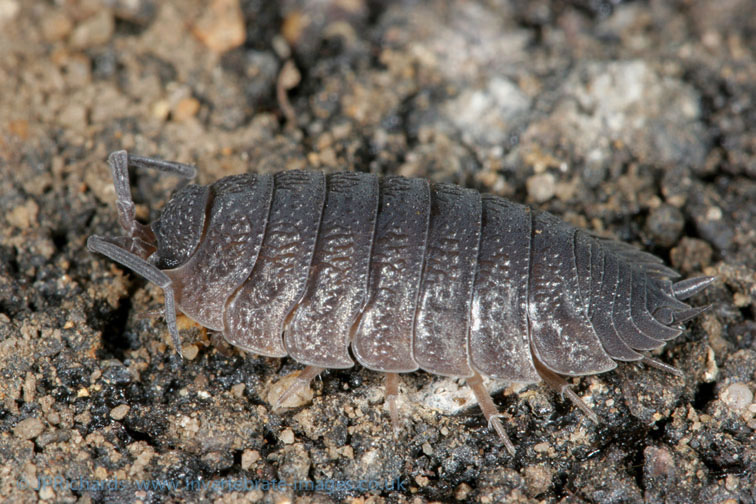Porcellio scaber Latreille, 1804
Common name
Status:
GB IUCN status: Least Concern
ID Difficulty
Identification
Porcellio scaber is a large (to 17 mm body length) woodlouse with a rough, heavily tuberculate body with a continuous/smooth outline, the antennal flagella comprising two segments and with two pairs of pleopodal lungs.
Although usually slate-grey in colour there are numerous colour forms included brightly mottled varieties (see images). In these forms the pattern is random, and not arranged longitudinally as seen in the similar looking P. spinicornis or Trachelipus rathkii.
Distribution
This species (along with Oniscus asellus) represents the archetypal ‘woodlouse’ familiar to the general public and is abundant under stones and dead wood throughout Britain and Ireland.
Habitat
There are few habitats where P. scaber does not occur. It it is more tolerant of dries sites than O. asellus and consequently is is the woodlouse most commonly encountered inside houses and readily climbs walls and trees.
This summary is based on the detailed account in Gregory (2009).
References
Gregory, S. (2009) Woodlice and Waterlice (Isopoda: Oniscidea & Asellota) in Britain and Ireland. Field Studies Council/Centre for Ecology & Hydrology.
Links
World List of Marine, Freshwater and Terrestrial Isopod Crustaceans: https://www.marinespecies.org/isopoda/aphia.php?p=taxdetails&id=262440












